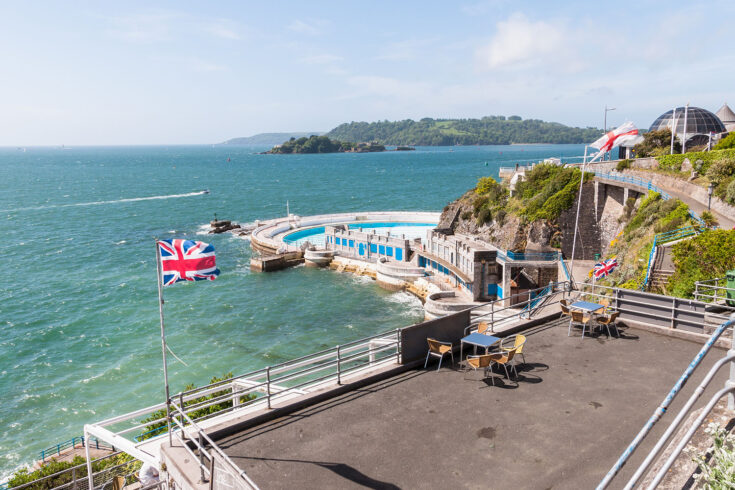Oceans cover 70% of the planet and their health affects everyone. As the world’s greatest carbon sink, a healthy ocean is essential in the fight against climate change. Protecting and preserving the seas is a matter of concern for many.
Dr Pamela Buchan investigated what motivates people to want to protect the marine environment. She surveyed or interviewed 280 coastal and non-coastal marine citizens (people who are actively engaged in pro-marine environmental behaviours).
Her research concluded that people can develop a marine identity when they love and depend upon a healthy ocean. This leads to a willingness to perform pro-marine environmental behaviours, which may contribute to improving ocean and climate health.
Credit: Economic and Social Research Council
On-screen captions and an autogenerated transcript are available on YouTube.
About the project
In her Economic and Social Research Council (ESRC)-funded PhD research project, Dr Pamela Buchan investigated what motivates people to want to protect the marine environment.
Holidays by the sea, paddling in rockpools, sailing, working in the marine sector, all such experiences provide the emotional and physical connections with the ocean that are the essential building blocks required to support pro-ocean behaviour.
Connecting with the ocean through the senses is much more likely to inspire environmental action than education on its own.
Dr Buchan says:
The important implication is that we ca not expect people to get involved in marine citizenship and take responsibility for achieving sustainable, healthy oceans without positive personal experiences of the sea.
While a positive relationship with the ocean inspires people to feel greater responsibility for its health, they can also, according to Dr Buchan’s new definition of marine citizenship, try to change society’s relationship with the ocean for the better.
Dr Buchan says:
People deserve a say on how we use the marine environment, and their responsibility is to speak up, working with decision-makers or government and trying to change society’s relationship with the ocean.
Raising awareness of people’s responsibilities and rights to the marine environment and connecting more people to the ocean has the potential to transform society’s relationship with the ocean. This will benefit not only ocean health but also the health, wellbeing and prosperity of communities.
Impacts of the project
Dr Buchan’s research has influenced initiatives by local authorities, conservation charities and marine organisations to help more people change their relationship with the ocean and develop a connection with the marine environment.
The UK’s first marine park
Her work helped secure £9.5 million in funding and establish the UK’s first national marine park (NMP) in the Plymouth Sound, to engage 5-million annual visitors and Plymouth’s residents with the ocean. This ground-breaking initiative will provide ‘hands-on’ experience of the sea to local residents and visitors, and is expected to be a blueprint for marine parks in the UK and beyond.
Her findings also shaped policy changes designed to give more deprived Plymouth communities direct access to the NMP.
Mr Patrick Knight, Economy, Partnerships and Regeneration Manager for Plymouth City Council says:
Dr Pamela Buchan’s academic knowledge and research findings on marine citizenship have changed Plymouth City Council policy and supported delivery of practical action, proving invaluable in helping establish the Plymouth Sound National Marine Park in ways that enable improved access to, learning about, and protection of the ocean.
Forming connections through experience of the sea
Dr Buchan’s research prompted the Ocean Conservation Trust (OCT) to change the emphasis of its public engagement programme from educating people to connecting them with the ocean.
The OCT now prioritises sensory ocean experiences and emotional engagement with the ocean, for example by handling crabs at the National Marine Aquarium or via virtual reality experiences for care home residents.
The OCT works to offer these opportunities widely, including helped care home residents to experience the ocean through virtual reality technology.
Building marine citizens
Working with OCT and the local government association, Dr Buchan helped develop a model Ocean Recovery Declaration (Motion for the Ocean). This helps local authorities work towards a clean, healthy and productive ocean and all of the direct economic, health and wellbeing benefits that this will bring for their communities.
The Motion for the Ocean has been passed by 13 coastal and inland councils, representing a total population of nearly 1.7 million people.
Find out more
Dr Pamela Buchan is a finalist in the ESRC Celebrating Impact Prize 2022.
Visit Dr Buchan’s website.
Read Dr Buchan’s research summary.
Learn more about the Motion for the Ocean initiative.
Top image: Credit: mkos83, iStock, Getty Images Plus via Getty Images

